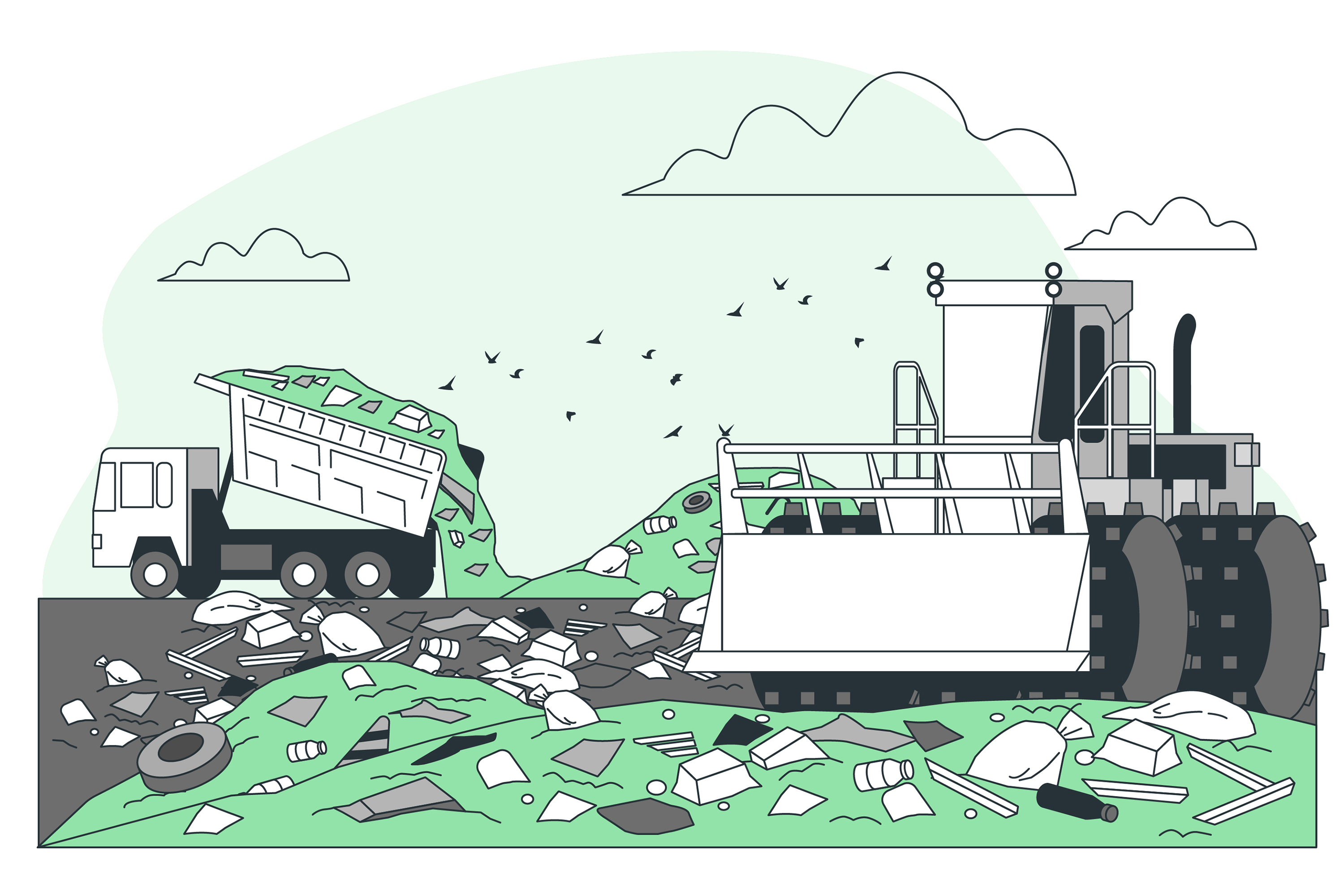Waste Management: Better done by understanding its life cycle

Experts say, the more we understand the products’ life cycle and their source of origination better we can manage them properly. Using the natural and organic forms of products are more environmentally friendly and are easy to manage compared to human-created products by chemical synthetization.
How we want our waste to be managed is not entirely our alone decision as we need to be responsible for some global concerns and commitments.
Collection, transportation, temporary storage, segregation, recycling processes and then eventually reach a crossroad of two choices for the small portion of waste whether to incinerate or to landfill them.
There is an increasing number of activists who are dead against the incineration process, scared of the emission and CO2 footprint it generates during the process. The greenhouse effect is the cause of Earth's greenhouse gases trap heat in the atmosphere and warm the planet. The main gases responsible for the greenhouse effect include carbon dioxide, methane, nitrous oxide, and even the naturally occurring water vapour and fluorinated gas emissions that intensify climate change. Incinerators emit many toxins and pollutants that harm local air quality. Emissions include dioxins, NOx and ultrafine particulate matter that can be harmful to both human health and the natural environment.
Similarly, the an equal number of activists who are not in favour of landfills as they make massive damage to the earth and the soil. Toxins, leachate and greenhouse gases are the major problems with landfill waste management. The Organic waste produces bacteria which break the rubbish down producing weak acidic chemicals that combine with liquids in the waste to form leachate and landfill gas. Hence landfills cause pollution by contaminating the area, dissertation of the land for several hundred years, hazardous wastes may promote zoonotic diseases and eventually the ecological imbalance is inevitable.
Hence 100% recycling is the modern concept of Zero Waste management, which practically looks very difficult to achieve in real life. First of all, we need to Reject many opportunities of gathering merchandise that creates waste that is difficult to manage. Reduction of use of materials, less is more or minimalist concept in daily living creates much less waste that requires management. Rather than buying a new one we are required to use it as long as it works Repairing it. Consumer-oriented society, prestige linked with brand new products, and innovation of new versions of gadgets will not allow us to remain “cool” and stay away from them. After all, we need to emphasize Recycling all the products by either down-cycling or up-cycling the waste before it reaches landfills or a burning furnace. Recycled products need marketing and make people Reuse them. Nowadays a lot of small entrepreneurs working on up-cycling of the waste textile and plastic into many different kinds of merchandise useful in daily life. Shopping bags, cushions, tablets carry cases and photo frames out of reused materials are well accepted even in the Nepali market.
Organic waste that Rots very fast is always the biggest component of municipal waste. Composting such waste is a great opportunity for any waste management company to recover energy and organic manure.
Here, I am trying to name the waste components so that readers can imagine how easy or how difficult it is to manage the waste that we produce every day in our homes. Understanding the waste and appraising its importance in our lives and self-reflecting on the waste management is the first step to keeping ourselves clean and keeping the planet a bit safe.
Waste segregation is a complex procedure where numerous products come under one category, which is described below:
- Paper Products:
- Mixed paper
- Books
- Magazines
- Cardboard
- Newspaper
- Plastic Products:
- Mixed Plastic
- Plastic Bag
- Plastic Bottles
- Polyfoam
- Beverage Cartoon/ trays
- Metal Products:
- Iron Cans
- Premium Metal
- Aluminium
- Scrap Metal
- Computer and appliances parts:
- Monitors
- Laptop
- CPU
- Hard Disk
- Printer/ Scanner
- Cartridge
- Kitchen and bathroom appliances
- Charger with cords
- Television
- Phone
- Bulb/lamps/ CFL/ LED
- Magnet
- Batteries
- Glass bottles
- Textiles etc.
Other than food scraps and compostable waste numerous waste products require a lot of attention and specialized systems. Is there any specialist in Municipality or have they already hired the waste management expert in their working team? This is what is going to make a huge difference in what is going to happen to our waste management. The waste management system blueprint is important before it is translated into reality with hardware installation. Top-level management commitment to technology-based waste management systems is the key to setting up a sustainable ecosystem.
How does the municipality arrange to pick up the waste from?
- Household
- Commercial complex
- Other specialized areas like offices, hotels, hospitals and Industries.
The whole ecosystem revolves around the sustainability of a waste management system that capitalizes on the opportunity that lies within General waste, food waste and recyclable waste.


